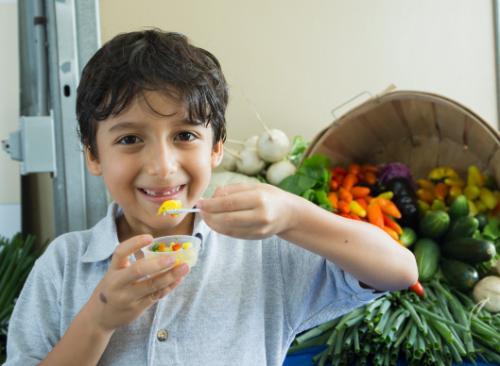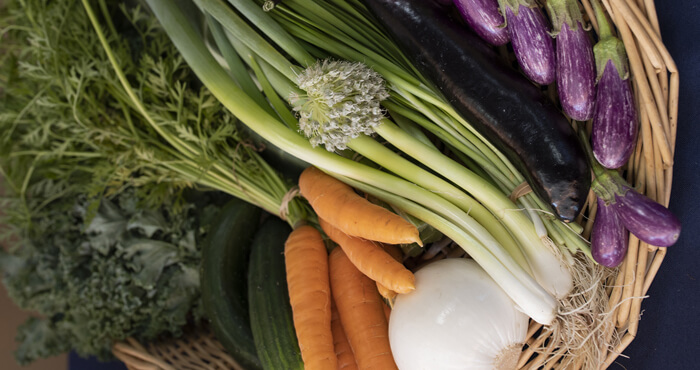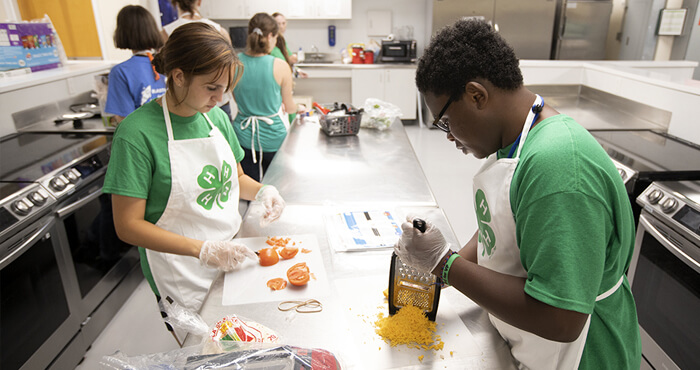.jpg)
Healthy Snacks for Children
Many people set goals of losing weight during the New Year, but healthy weight loss requires a commitment to adopting new habits. While improving eating habits or adding exercise can be difficult, setting realistic goals can make changing your lifestyle easier.

Healthy Snack Ideas
Keep the following suggestions in mind when providing snacks for your child:
- Reduce the number of snacks you serve your child each day.
- Serve whole grains low in fat and sugar, such as breadsticks, popcorn, and whole-grain tortilla chips.
- Offer fruits and vegetables often. Leave a bowl of fruit or vegetables, such as carrots or bananas, on the kitchen table. Canned, frozen, and dried fruits can also be a quick and easy snack.
- Serve small portions of cheese with fruits, vegetables, or whole grain foods, as cheese is high in saturated fat.
- Try low-fat dairy snacks, such as low-fat pudding.
- Nuts can be high in calories, so offer small portions to children who aren’t allergic. Serve the nuts with other foods, too. (Remember, don't give whole nuts to young children who can’t chew well.)
- Water is the perfect drink to have with snacks—it’s inexpensive and doesn’t have added calories or sugar.
- Save cookies, brownies, and other treats for special occasions and differentiate them from fruit and other snacks that your child can eat when they want.
Adapted and excerpted from:
Center for Science in the Public Interest, “Healthy Snacks for Children” (FCS8823), UF/IFAS Family Youth and Community Sciences Department (revised 06/2016).
FAMILY RESOURCES
- Disaster Prep and Recovery
- Disease Prevention and Management
- Families & Consumers
- Family Time
- Health and Nutrition
- Health and Nutrition for Children
- Health Care
- Pest Control
RESOURCES
UF/IFAS Sites
- Department of Family, Youth and Community Sciences
- Expanded Food & Nutrition Education Program (EFNEP)
- Family Nutrition Program (FNP)
- Food Science and Human Nutrition Department
- Health in a Heartbeat
UF/IFAS Publications
- Aging and Caregiving
- Children, Elders and Family
- Community Development
- Eating Well
- Food Safety in the Home
- Health and Nutrition
- Housing and Home Environment
- Money Matters
- Parenting
- Relationships
State & Federal Agencies



.jpg)

.jpg)